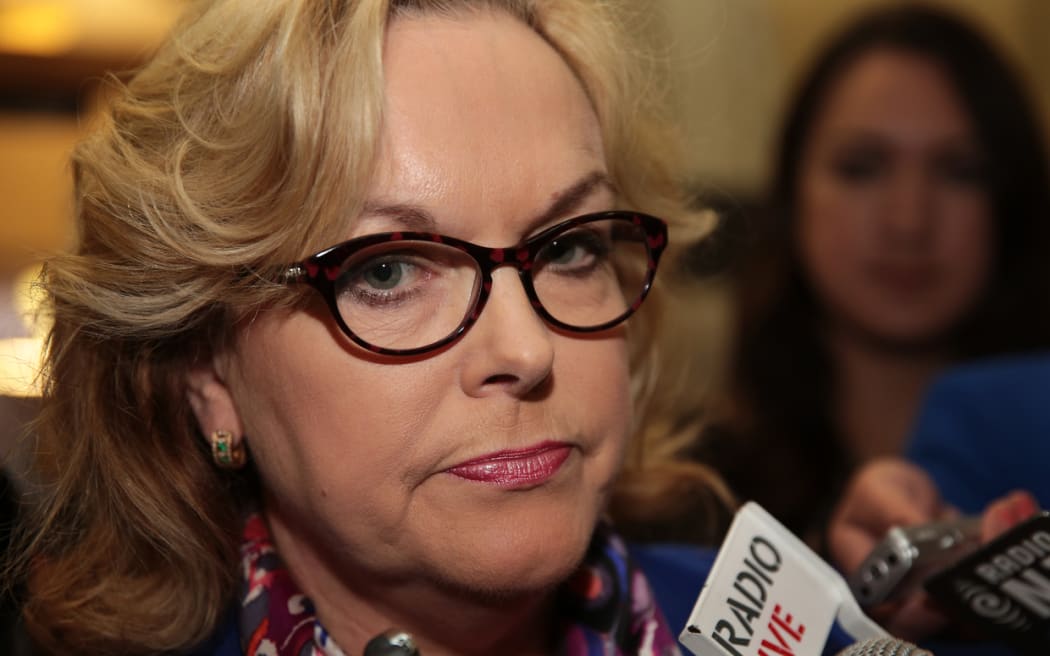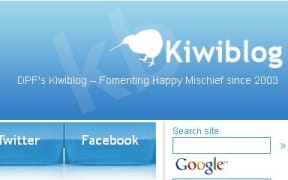The Inspector-General of Intelligence and Security will investigate claims the Security Intelligence Service (SIS) declassified information and gave it to a blogger for political purposes.
Watch John Key talking on Wednesday about the inquiry into the SIS allegations
Cheryl Gwyn said an investigation was warranted, as there was sufficient public interest in the matter.
Nicky Hager's book Dirty Politics alleges the SIS fast-tracked the release of information to the blogger Cameron Slater so he could attack former Labour leader Phil Goff.
It released documents about a 2011 meeting between SIS director Warren Tucker and Mr Goff to Mr Slater a day after he requested them.
The Inspector-General's investigation was prompted by claims from the Green Party that the SIS declassified the information with the express purpose of its being used in an orchestrated political attack.
Greens co-leader Metiria Turei welcomed the investigation and said the Government had treated the country's democratic processes and checks and balances as barriers to be circumvented in its own interest.
She said the decision showed Prime Minister John Key should take the allegations in Dirty Politics more seriously.
"John Key has been saying for days now that the allegations are baseless and are just a conspiracy campaign.
"In fact, the Inspector-General is saying the allegations themselves are serious enough to warrant that investigation."
Mr Goff said the investigation was necessary to give the public confidence that the SIS had not been manipulated, and that there were questions that needed to be answered.
"Whether Cameron Slater was tipped off by the National Party to specifically request a document, why the Director-General saw fit to release a document that was normally confidential, and to release it immediately, and why preference was given to Cameron Slater's request ahead of similar requests from the news media," he said.

Phil Goff. Photo: RNZ
Mr Goff told Checkpoint he hoped the Inspector-General could find something over and above the circumstantial evidence, that was available.
"I think the sooner we can get that answer, provided it's done thoroughly, the better," he said.
"I would, of course, prefer that to happen before the election but the timetable is in her hands, not in ours, and we're not trying to influence her on that."
Mr Key said the investigation was good news and should bring clarity.
"At the end of the day, we're very confident of the position. The SIS themselves have been running that process quite independently, and they've been commenting that everything was absolutely above board," he said.
"But the really good thing here is that the Inspector-General will be able to have a look and absolutely clarify that for everyone."
The fact there was an investigation did not mean there was some validity to the claims, Mr Key said.
Mr Key also held firm on not firing Justice Minister Judith Collins for her actions, detailed in the book and subsequent emails, which showed she gave the name and private phone numbers of public servant Simon Pleasants to Mr Slater.
Watch John Key talking to the media in Masterton
Ms Collins was motivated by the belief Mr Pleasants had leaked information in 2009 about Mr English double-dipping on his housing allowance.
Mr Pleasants had not leaked any information but was subject to abuse on Mr Slater's Whale Oil blog and also received death threats.
Mr Key yesterday described Ms Collins' actions as "unwise", and Deputy Prime Minister Bill English said her actions were not the way he operated.
But today Mr Key said he did not believe she had breached Cabinet Manual guidelines relating to standards of behaviour and the handling of private information, and said she had already been held to account.
"In the end, as Prime Minister, you have to judge a whole range of issues and some issues that happen with Cabinet ministers are serious, some are less serious."
He denied he was not acting against Ms Collins because she held politically damaging information on him.

Judith Collins. Photo: RNZ / Diego Opatowski
Advantageous requests expedited
Meanwhile, public law specialist Dean Knight said Mr Hager's book had revealed that Official Information Act requests were expedited if they were politically advantageous to the government of the day.
Dean Knight, a senior lecturer at Victoria University's law school, said it was known that requests under the Act were delayed if they did not advantage the government. But it had become clear the opposite also occurred, he said.
"Potentially politically advantageous requests are either encouraged or somehow expedited.
"I think that might be a concern that those watchdogs over the Official Information Act processes, the Ombudsman, might be concerned about."
Meanwhile, new Facebook messages anonymously released online reveal Mr Slater was worried the mainstream news media was going to get the information from the SIS before him.
In one message, the blogger said he was probably going to get ganged up on by mainstream media in Wellington getting the documents first.
The messages have been released in a further dump of material by the person who hacked into Mr Slater's site and then passed the information on to Mr Hager.
They also confirm Mr Slater worked closely with senior National Party figures over releasing information on Labour Party supporters and donors that he got from gaining access to Labour's information system.





